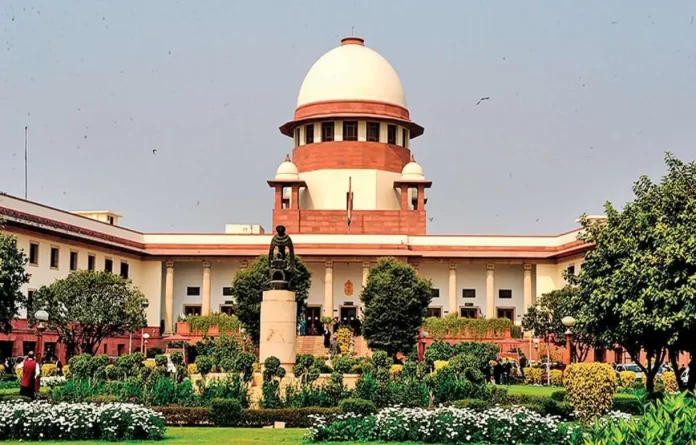The Supreme Court on Tuesday reserved its judgment on two petitions challenging the demolition of houses of persons, who were involved in criminal cases, as a punitive measure by different state governments.
The Bench of Justice BR Gavai and Justice KV Viswanathan said that since India was a secular country, it would issue pan-India guidelines applying to everyone equally, regardless of their community.
The guidelines would ensure that the local laws providing for the demolition of unauthorised constructions were not misused and that due process was followed during such acts.
They would further make sure that demolitions were not carried out merely because somebody was an accused or a convict in a criminal case, noted the Bench, adding that it would see to it that unauthorised constructions and public encroachments were not protected through these rules.
Earlier, the Bench had expressed the intention to lay down pan-India guidelines and allowed the parties to give their suggestions. Senior Advocate Nachiketa Joshi compiled the draft suggestions submitted by various parties and presented them to the Court.
On September 17, the Court had passed an interim order that no demolition should be carried out without obtaining its prior permission. However, it clarified that the directive was not applicable on encroachments in public spaces.
The top court of the country passed the order on two petitions filed by Jamiat-Ulama-I-Hind, raising the issue of state governments demolishing houses of persons accused of crimes as a punitive measure.
The Bench observed that selective demolition of certain unauthorised constructions, especially when the owner was found involved in a criminal case, was a problematic issue.
Some judicial oversight was needed to ensure that there was only one law for all unauthorised constructions, irrespective of community, said the Bench, reiterating that the mere existence of accusations in a criminal case or even conviction in a case could not be a ground to demolish their homes.
Appearing for the States of Uttar Pradesh, Madhya Pradesh and Gujarat, Solicitor General Tushar Mehta agreed that the alleged involvement in a criminal case could not be a ground to demolish someone’s building.
The SG, however, expressed concerns about the September 17 order of the Apex Court, which stayed demolitions. SG Mehta contended that it could hinder the removal of genuine encroachments.
He said the situations highlighted by the petitioners – the use of demolitions as a punitive measure – were far and few between, accounting for less than 2 percent of the actual demolitions carried out in the country.
In the backdrop of a few cases of alleged injustices, big builders and others should not be allowed to take undue advantage, he added.
The Apex Court observed that the notice for demolition must be sent through a registered post to the actual owner with the acknowledgement due. It also suggested that notices and orders could be digitised and uploaded on an online portal to ensure more transparency.
The top court of the country further advised that there should be a window of time between the final demolition order and its implementation, giving time for the affected persons to make alternative arrangements.
The Apex Court said that once an order was passed, it may protect the accused for 10-15 days. Even if the Court decided to entertain a grievance, the question of stay could be decided within a month.
However, SG Mehta expressed a concern that such a general direction may amount to the Court amending the provisions of various local laws.
The Apex Court responded that even if they were living in authorised houses, seeing women, elders and children on the road was not a happy sight. They should be given ample time to make alternative arrangements.
Representing the petitioner, Senior Advocate CU Singh mentioned cases, wherein the demolitions took place on the very next of filling of the FIR.
Singh submitted that the State had a legitimate interest in protecting public land. But the same did not obviate the need for people to be given notice.
There was rarely a demolition of eminent emergency. Demolitions took place even after the Supreme Court order in Gujarat, wherein houses of 28 people were demolished.
Noting that people from all communities have faced the brunt of such actions, Singh contended that the concern was with respect to the misuse of municipal laws as a crime-fighting measure.


